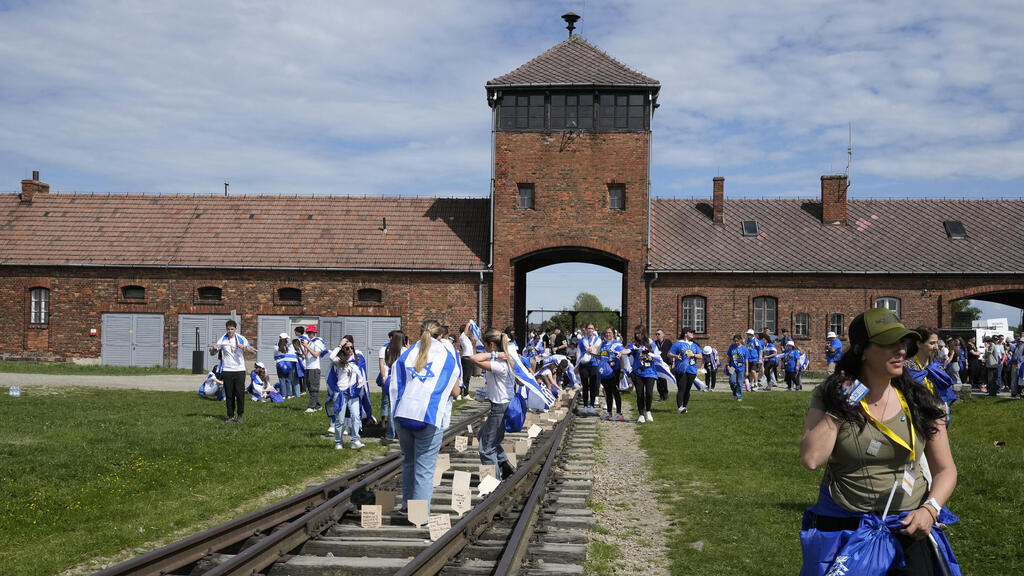Getting your Trinity Audio player ready...
This year marks 80 years since the liberation of the Nazi extermination camps — a dark chapter in human history that ended with a promise: such atrocities would never happen again. That promise, however, was not kept.
The establishment of the United Nations (UN) and the adoption of the Universal Declaration of Human Rights symbolized a commitment to a better future. Yet, a look at the decades since reveals a grim reality: war crimes, ethnic cleansing and even genocides have taken place repeatedly across the globe, underscoring the global failure to uphold the promises made after the war.
The world largely remained silent during the genocides in Rwanda and Darfur and the ethnic cleansing in the Balkans. The Bashar Assad regime’s use of chemical weapons against civilians in Syria demonstrated a blatant disregard for international norms, yet global responses were minimal.
Iran’s oppressive regime continues to suppress its citizens, especially women, while international reactions are often limited to empty statements. Even in current conflicts, such as Israel’s war against Hamas, moral clarity is lost in political narratives, with institutions like the International Court of Justice targeting Israel for defending itself against terrorism.
Alarmingly, even the memory of the Holocaust has been politicized. Russia’s use of “denazification” to justify its invasion of Ukraine cheapens Holocaust remembrance and undermines the fight against real manifestations of Nazism and antisemitism.
Such cynical manipulation of history dishonors the victims and weakens global efforts to combat hatred and prejudice.
The passage of time exacerbates the problem. As traumatic events fade into the past, their lessons are forgotten and distorted. A 2020 Conference on Jewish Material Claims Against Germany (Claims Conference) survey in the U.S. found that 63% of students did not know six million Jews were murdered in the Holocaust.
Such ignorance fosters conspiracy theories and blatant Holocaust denial. Just last September, Tucker Carlson hosted Holocaust denier Daryl Cooper on his show, spreading false narratives to millions.
The October 7 massacre served as a wake-up call for rising antisemitism. A survey by the Combat Antisemitism Movement found that 3.5 million American Jews encountered antisemitism following the attack, with 61% reporting a decline in their personal sense of security.
The Anti-Defamation League documented over 10,000 antisemitic incidents in the U.S. in the year following October 7 — an increase of over 200% compared to the previous year, marking the highest number since tracking began in 1979.
The statistics are shocking worldwide. According to the Israeli Diaspora Ministry’s report, Canada saw a 670% increase in antisemitic incidents compared to the previous year. Although Jews make up just 1.4% of Canada’s population, they account for 70% of religion-based hate crime victims.
In the UK, the Community Security Trust (CST) recorded 5,583 antisemitic incidents between October 7, 2023, and September 30, 2024 — three times the 1,830 incidents recorded in the same period the year prior. Antisemitism has moved from the fringes to the mainstream, even infiltrating leading university campuses — once beacons of values and human dignity.
Pro-Palestinian rally near the March of the Living event
(Video: Iris Lifshitz Klieger)
To combat this wave of hatred, global leaders and societies must reflect deeply on their inaction in the face of ongoing atrocities, such as the dehumanization of women in Afghanistan, the brutal oppression in Syria or the human rights violations in Iran. A renewed and genuine commitment is needed to fight this dangerous hatred.
As world leaders gather to commemorate 80 years since the liberation of Auschwitz, at ceremonies at the Auschwitz Museum and the UN, they must issue a clear and unequivocal commitment to education.
Get the Ynetnews app on your smartphone: Google Play: https://bit.ly/4eJ37pE | Apple App Store: https://bit.ly/3ZL7iNv
It’s crucial to remind people, especially younger generations, of the depths to which hatred and racism can descend. This is the mission of March of the Living, which brings thousands of young people, Jewish and non-Jewish alike, to see the sites of atrocities and hear the testimonies of Holocaust survivors.
 Dr. Shmuel Rosenman Photo: Yossi Zigler
Dr. Shmuel Rosenman Photo: Yossi ZiglerGovernments across the Western world must prioritize Holocaust education, not as lip service but as a painful reminder and a warning sign against racism, hatred and antisemitism. Today, 80 years after the Holocaust, the state of Jews worldwide is at its most perilous since that dark era. This trajectory can still be halted, even as the train barrels toward the abyss at full speed.
- Dr. Shmuel Rosenman is the chairman of the International March of the Living.






